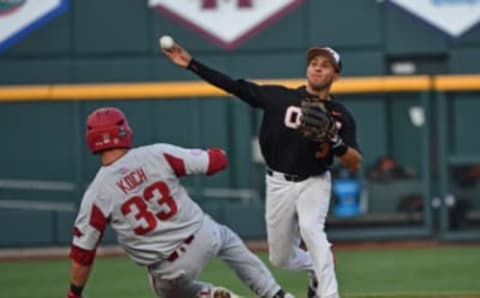White Sox: Three players that should get contract extensions

Luis Robert signed a six-year, $50 million contract extension with the Chicago White Sox that allows the team to start the season with him on the roster. With that being the case, who should be next?
A number of factors have to be discussed before deciding who or how many players to extend from your core.
For starters, arbitration eligibility is a major factor for many of the players on the roster as the team likely doesn’t want to pay their top-tier guys more than they have to early on unless they are getting potential savings later.
Another factor to consider is their likelihood of improving or at least maintaining their production. Obviously, the team wants to be confident that they aren’t likely to regress over the lifetime of the contract.
The South Side is fortunate enough to have many young talented players right now and some of them are under long-term control already such as Robert, Tim Anderson, and Eloy Jimenez.
However, the White Sox should not stop there in trying to secure their core players long-term. Here are three players that the White Sox should look to extend before their price tag becomes too high to retain.

1. Lucas Giolito
The right-hander broke out in a big way in 2019 as he led the White Sox rotation throughout the season.
In 29 starts, Giolito registered a 3.41 ERA, 3.43 FIP, and 1.064 WHIP with a career-best 11.6 K/9 as compared to 2.9 BB/9.
At 25-years-old, the former Nationals’ pitcher is likely only going to get better from here on out, making him a very strong candidate to give an extension to.
This season is the last one where he’ll make roughly the league minimum as he is heading to arbitration next offseason and will be a free agent after the 2023 season.
To avoid that, the White Sox could give him an extension now that would give him a little more money this season, but could possibly give the organization extra seasons of control and save the team money down the road.
Obviously, there is still some fear he could regress as anyone theoretically could, but his former top prospect status should ease those worries.
Currently, the team only has one starter under a long-term contract in rotation (Dallas Keuchel), so the White Sox could certainly afford to give their ace a big commitment.
While the White Sox could wait another year to see if Giolito can repeat his 2019 success, they really should consider giving him a long-term deal now.

2. Yoan Moncada
The third baseman is arguably more important to lock up now to ensure cost-control later on after he recorded a 5.7 fWAR with a 141 wRC+ in 2019.
While he has the same arbitration (hits it for the first time after the 2020 season) and team control (free agent after 2023 season) situation as Giolito, he’s quickly ascended into star category and hitters tend to get paid more than pitchers.
Arbitration, in particular, is very kind to position player stars like Moncada and his first-time salary next offseason could possibly be $6-$7 million.
If he were to maintain his level of production offensively last season and maybe even improve defensively (-7 DRS, 4.3 UZR in 1,095 2/3 innings), Moncada could get a salary over $20 million in his final season arbitration anyways.
Unlike Giolito, waiting a year to see if Moncada can replicate his performance could significantly alter the price of an extension in the wrong direction.
A price tag of six years, $100-$110 million to sign him long-term now and buy out a few his free agent seasons makes sense, but next offseason that could jump into the seven-year, $160-$180 million range.
Both contracts would be deemed great value if the 24-year-old is as good going forward as he was in 2019. However, the first contract extension would save the team significantly more money in the future.

3. Nick Madrigal
Samiya Green recently wrote about why Madrigal needs to be the next extension they look towards agreeing to and I completely agree.
While most teams don’t sign players to extensions that haven’t played a day above Triple-A, the White Sox aren’t most teams.
They’ve now signed Robert and Eloy Jimenez to long-term deals before they were in a major league lineup.
Even if the White Sox don’t plan to have Madrigal start the season with the team, having his contract cost-controlled going forward could be great.
They seem to think very highly of Madrigal and with good reason as the 22-year-old hit .311/.377/.414 with four homers, 55 RBI, and 35 stolen bases. He also, simply, has bat-to-ball skills that some can only dream of with a mere 16 strikeouts across 532 plate appearances.
Locking up Madrigal is actually probably the easiest of these three options to see happening given that both parties have strong reasons to make an extension work.
For the White Sox, it would provide a sense of security in terms of cost-control and would allow them to not worry about service-time manipulation.
Madrigal’s incentive to do this would be that he’s getting guaranteed money before he proves he belongs at the major league level.
Many top prospects have struggled in the majors, so there would definitely be more risk for him in declining an extension than someone who has already proven he belongs.
Next. White Sox: Three Platoon Partners For Mazara. dark
It remains to be seen if any of these players will sign extensions with the White Sox long-term, but the team should certainly try to agree to deals with them before it is too late.